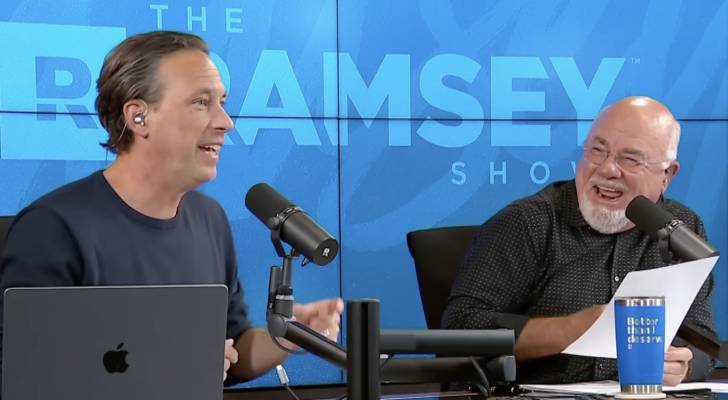Sometimes, the government just opens itself up for criticism with its actions. Which explains why The Ramsey Show’s Ken Coleman didn’t shy away from sharing his opinion about the public voluntarily paying down the U.S. government’s debt through Venmo.
He even quoted Sir Anthony Hopkins from the film Legends of the Fall in response to a Texas man named Carlos’ letter to the show. (1)
In July, the U.S. Department of the Treasury began accepting ‘gifts to reduce the public debt,’ which currently sits around $37 trillion. (2)
That means anyone can send donations to the government through Venmo, PayPal, debit or credit card or even a bank transfer. According to Pay.gov, the donations go directly toward reducing the national debt. (3)
Coleman and co-host Dave Ramsey both thought the idea of voluntarily sending money to the government was laughable. Still, Ramsey added a playful caveat: “There’s always one idiot out there who says everyone should pay their fair share … If you want to pay some more into the government … If you’re the type of person that believes this is a good idea, I think you should do it.”
So, can this unusual approach actually help pay down America’s public debt?
Ramsey incorrectly pointed out in the segment that 49% of Americans pay no federal income tax in the segment. In reality, around 40% of households won’t owe federal income tax in 2025, according to the Tax Policy Center (TPC). (4)
The TPC estimates that about 70% of households that don’t pay federal income tax earn less than $75,000, and around 45% earn less than $40,000. Nearly 7% of households in the top 10% of earners will pay no federal income tax in 2025.
According to the Tax Foundation, the top 50% of earners collectively paid 97% of all federal individual income taxes, while the bottom 50% paid the remaining 3%. (5) Narrowing it further, the top 10% of earners shouldered more than 60% of all federal taxes and 76% of income taxes. (6)
In 2024, the IRS collected more than $5.1 trillion in tax revenue. But since the federal government spent even more, the national debt continued to grow. During the 2025 fiscal year, the Treasury reported $4.69 trillion in revenue but spent $6.66 trillion. (7)
So, what would happen if taxpayers started donating extra money to the government? It’s hard to say, because very few people are doing this.
Between January and August 2025, the Treasury received around $734,000 in donations. (8) While it’s a large sum for an individual, it barely makes a dent in a $37 trillion debt. The donations wouldn’t even cover the amount that the government overspent in the previous fiscal year.
Every little bit helps, but when you are dealing with trillions, even a few million dollars a year won’t make a difference. It wouldn’t even cover a day’s worth of interest on the debt. The real issue is that the government spends significantly more than it makes, so the debt will likely keep growing.
Read more: Robert Kiyosaki warns of a ‘Greater Depression’ coming to the US — with millions of Americans going poor. But he says these 2 ‘easy-money’ assets will bring in ‘great wealth’. How to get in now
You won’t catch Dave Ramsey sending the government a Venmo payment. But should you?
Making extra payments on top of your tax bill won’t benefit you personally. Still, if you have the financial flexibility and feel compelled to donate, nothing is stopping you.
Gifting money to the federal government isn’t new. Americans have been sending in donations since the 1800s. But those gestures haven’t stopped the U.S. from racking up significant debts — and they’re unlikely to make a meaningful difference.
Unlike a household dealing with credit card debt, some economists say the federal debt isn’t an immediate problem. Because most of the government’s debt carries relatively low interest rates, they argue it’s manageable — at least for now. Others, however, aren’t so sure when the debt might become too much to handle. (9)
Join 200,000+ readers and get Moneywise’s best stories and exclusive interviews first — clear insights curated and delivered weekly. Subscribe now.
We rely only on vetted sources and credible third-party reporting. For details, see our editorial ethics and guidelines.
The Ramsey Show (1); U.S. Debt Clock (2); Pay.gov (3); Tax Policy Center (4); Tax Foundation (5); Cato Institute (6); Fiscal Data (7, 8); Brookings (9).
This article provides information only and should not be construed as advice. It is provided without warranty of any kind.
